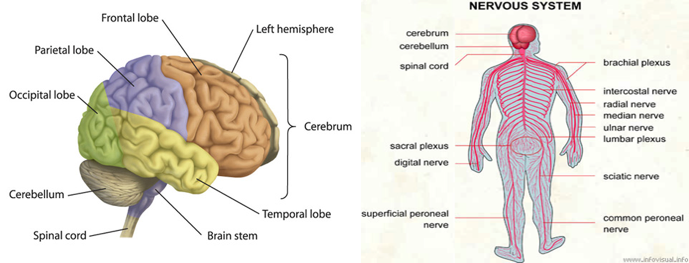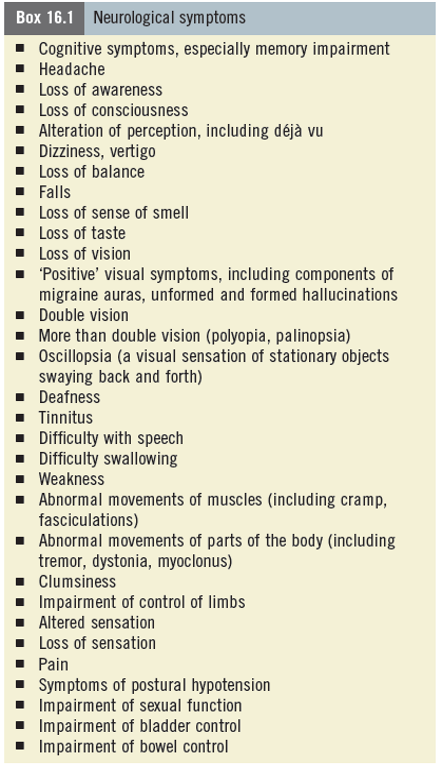INTRODUCTION
- complete medical evaluation includes
- medical history
- physical examination
- Appropriate laboratory or imaging studies
- analysis of data
- Diagnoses
- Treatment plan
What Is Integral Distinction Of Neurological History?
- The neurological history should be a focused, goal-directed exercise that answers the following questions:
- Where in the NS is the lesion?
- What is the pathological process (e.g. inflammatory, vascular, infectious)?
- Is this a purely neurological problem or a neurological manifestation of a systemic disease?
Neurological history taking
Components; •Medications and allergies - past and current medications e.g anti-convulsants, OC, steroids, anti-hypertensives, anti-coagulants
- Presenting complaint
- One or several? Useful to list.
- Allow uninterrupted narrative, so far as possible
Clarify - Date of onset CNS - Frequency of recurrence - Duration of episodes - Evolution - Nature of main symptom, in detail - Tempo - Associated features - Triggers - Exacerbating/relieving factors CNS; Conditions which exacerbate and remit
- Treatments;
- Patients may have taken drugs or other forms of therapy
- Such drugs may not have been taken properly
- adverse effects by themselves
- worsened or alleviated the symptoms
- no effect whatsoever except

Neurological symptoms

The “ Classic” History Taking Sequence
The order are :-
- Identification CNS
- Chief Complaints
- History of Present Illness CNS
- Functional Inquiry (System Review CNS)
- Past Illness CNS including Previous Admission
- Family History CNS
- Drug History
- social History CNS
- Physical Examination
- Summary CNS
- Differential Diagnosis CNS
Subjective. This will include those relevant points obtained from the Chief Complaints, the History of the Present Illness, the Functional Inquiry, Personal and Family History.
Questions to be answered!!!
- Is there a lesion
- Where is the lesion
- What is the lesion
- Is there treatment